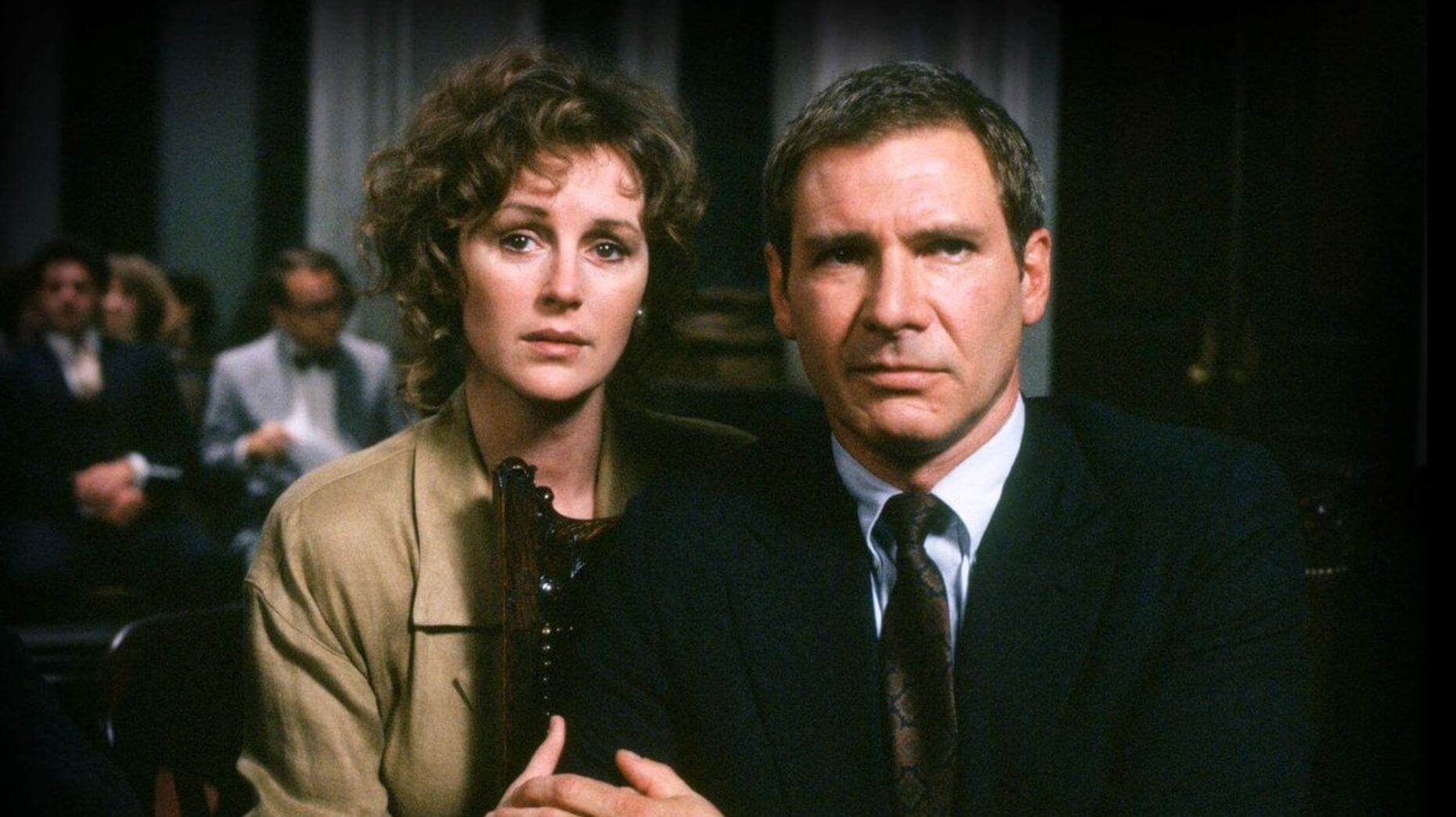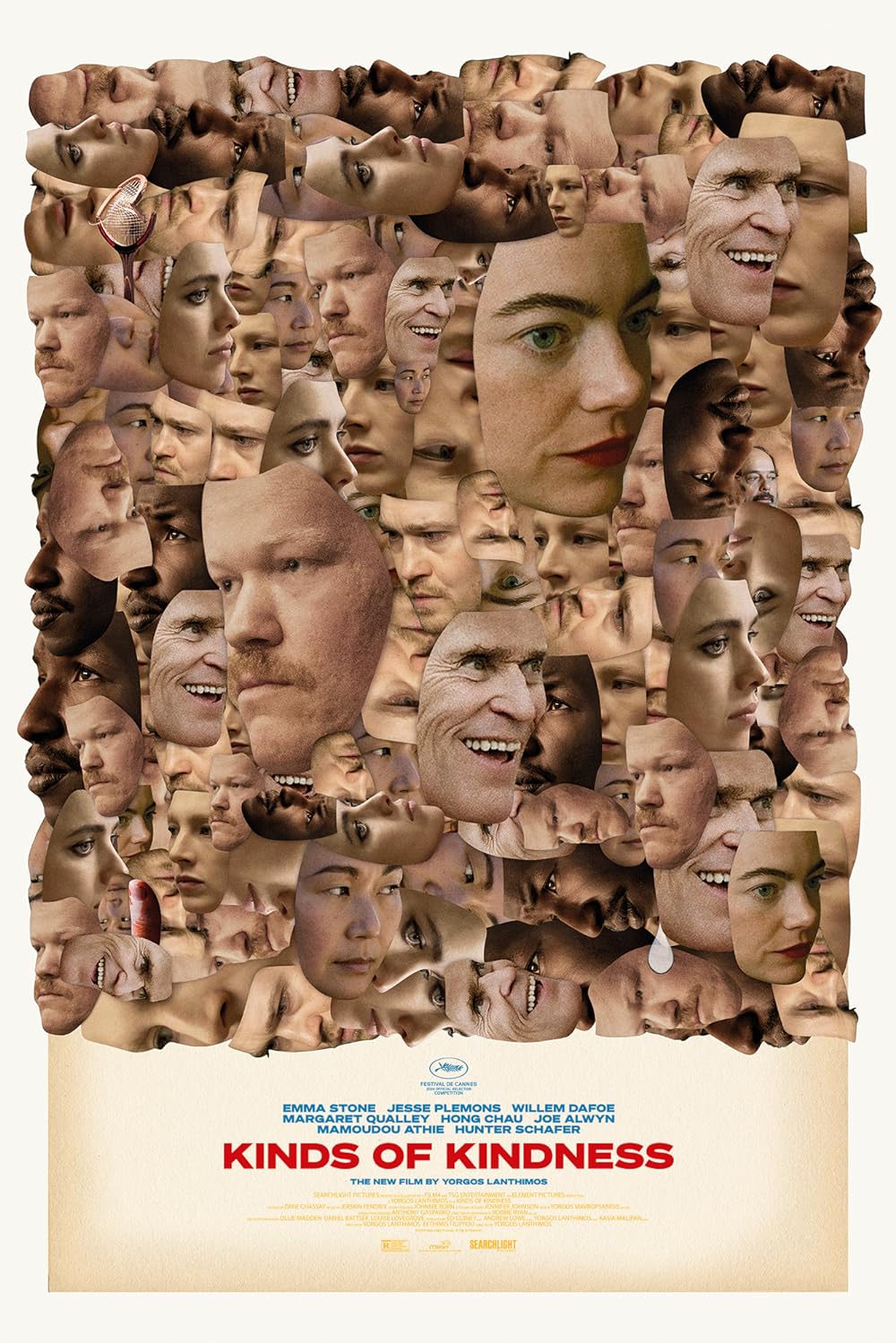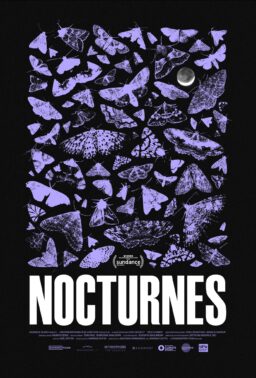I don't have much patience for people who lament how "they don't make movies like ____ anymore." Genres fall in and out of fashion—certain types of films come and go over time. But with the release of the new Apple TV+ limited series "Presumed Innocent," I am reminded of a time when such a story would be told on the big screen—and actually be a fairly big deal. In fact, this exact story was told on the big screen in the summer of 1990, becoming a hit in the process. The "Presumed Innocent" film was part of what now seems like an extinct era, that of the prestige adaptation of the page-turning blockbuster novel. We used to make classy movies based on books everybody read. Those movies weren't great, but they sure seem novel now that they're gone.
In the early ‘90s, if you were going to make a film that appealed to grownups and the masses simultaneously—and back then, those demographics were often considered one and the same by Hollywood—you would attach the sort of names who worked in front of and behind the camera for "Presumed Innocent." The movie was directed by Alan J. Pakula, a master of riveting, character-driven 1970s thrillers such as "Klute" and "All the President's Men." He was joined by his longtime cinematographer, the acclaimed Gordon Willis, nicknamed the Prince of Darkness because of his incredible use of shadows and low lighting. "Presumed Innocent" was produced by "Tootsie" director Sydney Pollack, fresh from winning Oscars for "Out of Africa, and co-written by Frank Pierson, among the most revered of all screenwriters. John Williams did the music. It was based on the 1987 debut bestseller from lawyer-turned-author Scott Turow, and it starred Harrison Ford, one of Hollywood's most bankable stars, best known as Han Solo and Indiana Jones but who had also shown an aptitude for dramas with "Witness" and "The Mosquito Coast."
The novel had been a sensation, catapulting the unknown author to stardom. In a 2010 interview, Turow marveled, "Presumed Innocent changed my life and I went from being a guy writing on the morning commuter train—and I finished the book in an unfinished basement in my house in Wilmette—I went from that to somebody who was a bestselling author around the world." Boasting a twist ending—which I won't reveal just in case you don't want it spoiled—the book was a gripping courtroom drama laced with juicy subjects like infidelity and murder. It seemed a natural fit for the movies.
In the film, Ford plays Rusty, a respected, no-nonsense prosecutor asked to take the lead on the investigation into the grisly murder of fellow prosecutor Carolyn (Greta Scacchi), who appears to have been raped and killed in her home. It's a horrible crime, but for Rusty, her passing is personal: Not long ago, he and Carolyn had a torrid affair, which nearly destroyed his marriage to Barbara (Bonnie Bedelia), the mother of his young son. Rusty and Barbara have barely put that terrible past behind them when news breaks of Carolyn's murder—soon, though, Rusty is arrested for the murder, physical evidence at the scene of the crime, including a fingerprint on a glass, raising the likelihood he's guilty. Swearing his innocence, Rusty hires intrepid defense attorney Sandy (Raul Julia) to represent him in court.
It's been more than 30 years since I read Presumed Innocent, but among my memories of it was that Turow struck a balance between high and low, aiming to attract readers who might buy the novel at the airport (or for the beach) while offering a mournful look at a flawed man forced to reexamine his failings. (The book is told in Rusty's voice.) Our hero may insist he didn't kill Carolyn. Still, he's certainly guilty of other sins, and Turow examined Rusty's torment—all the while including the occasional sex scene or courtroom surprise. It was a smart read you could breeze through—a commentary on obsession, regret, and the limits of the justice system that had myriad colorful characters and pulpy pleasures.
When Pakula and Ford made "Presumed Innocent," they were hardly the first to turn a potboiler into a somber-minded event picture. ("The Godfather" is but one of many examples.) And it wasn't even the first hit movie of 1990 based on a page-turner. ("The Hunt for Red October" arrived four months earlier.) "Presumed Innocent" aspired to be an adult drama—thoughtful, sober, and filled with notable character actors like Raul Julia, Brian Dennehy, and Paul Winfield. It also tapped into the erotic-thriller genre, which had become popular thanks to "Fatal Attraction," the 1987 smash that had earned a Best Picture nomination. Both films were about the allure and danger of an extramarital affair: In "Fatal Attraction," Michael Douglas' mistress tries to kill him (and ruin his marriage), while in "Presumed Innocent," Carolyn's death leads to Rusty facing the possibility of going to prison (and also ruining his marriage). Among Rusty's flashbacks, the most lurid is his fairly tasteful sex scene with Carolyn on top of a desk at their office. The lighting is immaculate, the choreography artful. Williams' score surges in intensity, rippling with excitement and dread. It's meant to be Rusty's fall from grace as much as it's meant to be titillating.
The movie's mixture of sexy and serious—nudity and guilt—would soon become a formula for plenty of 1990s adult drama and thrillers, with everything from "Basic Instinct" to "Indecent Proposal" to "Disclosure" (the latter two also based on novels) using steamy infidelity as the sizzle to sell morality tales. "Presumed Innocent" was the classiest of the group, which doesn't necessarily mean it was the best, but Pakula and Ford approached the material with the care of a prestige picture. This was presented as sophisticated entertainment, with even the sex shown in a grownup way. Opening in between "Die Hard 2" and "Young Guns II" on the summer release calendar, "Presumed Innocent" was intended to be a multiplex hit, which it was, ending up as one of 1990's highest-grossing films.
It had been decades since I watched the movie—though positively reviewed, it's hardly held up as a great film or even one of Ford's finest moments—and revisiting it last week, I was struck by how wonderfully competent it was. That sounds snide, but I mean it sincerely: Over the course of two very watchable hours, I was sucked back into Rusty's world as his life slowly falls apart, the supporting characters all appealing types and a few emerging stars popping up in the margins. (I had no memory Bradley Whitford was in "Presumed Innocent," alongside his future "West Wing" costar John Spencer.)
Never especially revelatory but quietly compelling scene to scene, Pakula's film features an understated Ford as a man so tragically bottled up that he seems incapable of expressing the profound anguish he feels—over the affair, over Carolyn's death, over being accused of her murder, over the damage he's done to his family, over his wife's angry certainty that he's still in love with the deceased. With Julia superb as Rusty's crafty lawyer and Winfield expertly playing the unimpressed judge, "Presumed Innocent" feels like the work of old pros doing their thing. There's a remarkable comfort to the film—the reliable enjoyment of a crackling story told well, complete with the prerequisite reveal of the killer during the third act through a melodramatic "This is why I did it" speech. "Presumed Innocent" is smooth, polished, efficient. Nothing more, nothing less.
When older moviegoers complain about how they don't make ‘em like they used to, they're talking about "Presumed Innocent" and other perfectly good, modestly budgeted dramas. Like Turow's book, the film is high-toned escapism, decorated with handsome production values and good actors. If the film were a meal, it would be quality fast-casual, and soon, other blockbuster books made their way to the screen—specifically, the works of another attorney-turned-author, John Grisham. Morally nuanced erotic thrillers weren't his thing, though, as films like "The Firm" and "A Time to Kill" were more traditional legal thrillers. Grisham wasn't alone, though. Michael Crichton had a great 1990s, with Jurassic Park, Sphere, and Disclosure all being adapted. And on the strength of "The Hunt of Red October's" success, author Tom Clancy saw a few other Jack Ryan books get turned into films, also starring Ford. Most of these page-turning adaptations were well-crafted flicks—solid doubles that weren't trying to be home runs. Which is fine—not every movie needs to swing for the fences.
As Hollywood moved more towards commercial big swings—specifically, big-budget franchise films—mildly ambitious airport-novel dramas like "Presumed Innocent" got shoved to the sidelines. (You had a better chance being a J.K. Rowling, Dan Brown or Suzanne Collins, writing fantasy or mystery books that spawned highly profitable I.P.) But it's too easy to blame this industry transformation merely on Marvel or Harry Potter. Watch Pakula's film now, and you'll be struck by how much it recalls the cop-and-crime procedurals that soon came to dominate television. In short order, "Law & Order" offered similarly gripping kicks every week, with the popular spinoff "Law & Order: Special Victims Unit" peddling even more salacious stories. And as prestige television and streaming services hungry for "content" sprung up in the new century, a page-turning phenomenon like Turow's debut more neatly fit on the small screen.
No surprise, then, that Apple has now adapted Presumed Innocent into an equally classy limited series starring the likes of Jake Gyllenhaal, Ruth Negga, Bill Camp, Elizabeth Marvel, Renate Reinsve, and Peter Sarsgaard—all overseen by David E. Kelley, who wrote on "L.A. Law" back in the day and went on to create a plethora of legal series. (Not for nothing, but this year, he was also behind the Netflix adaptation of another blockbuster novel, Tom Wolfe's A Man in Full.)
Do the nostalgists have a point about how studios have mostly turned their back on adult dramas? Probably—you still get the occasional "Where the Crawdads Sing," based on the Delia Owens novel—but what's most poignant about their complaints is that when you revisit a film like "Presumed Innocent," it's clear that the movie isn't some forgotten masterpiece. Really, it's just well-made—a little formulaic, perhaps, but nonetheless nicely constructed. In our modern era of overstuffed, often incoherent spectacle, maybe we're not so much missing grownup movies as we are films that are just solid. It's too bad Hollywood decided to turn the page.












